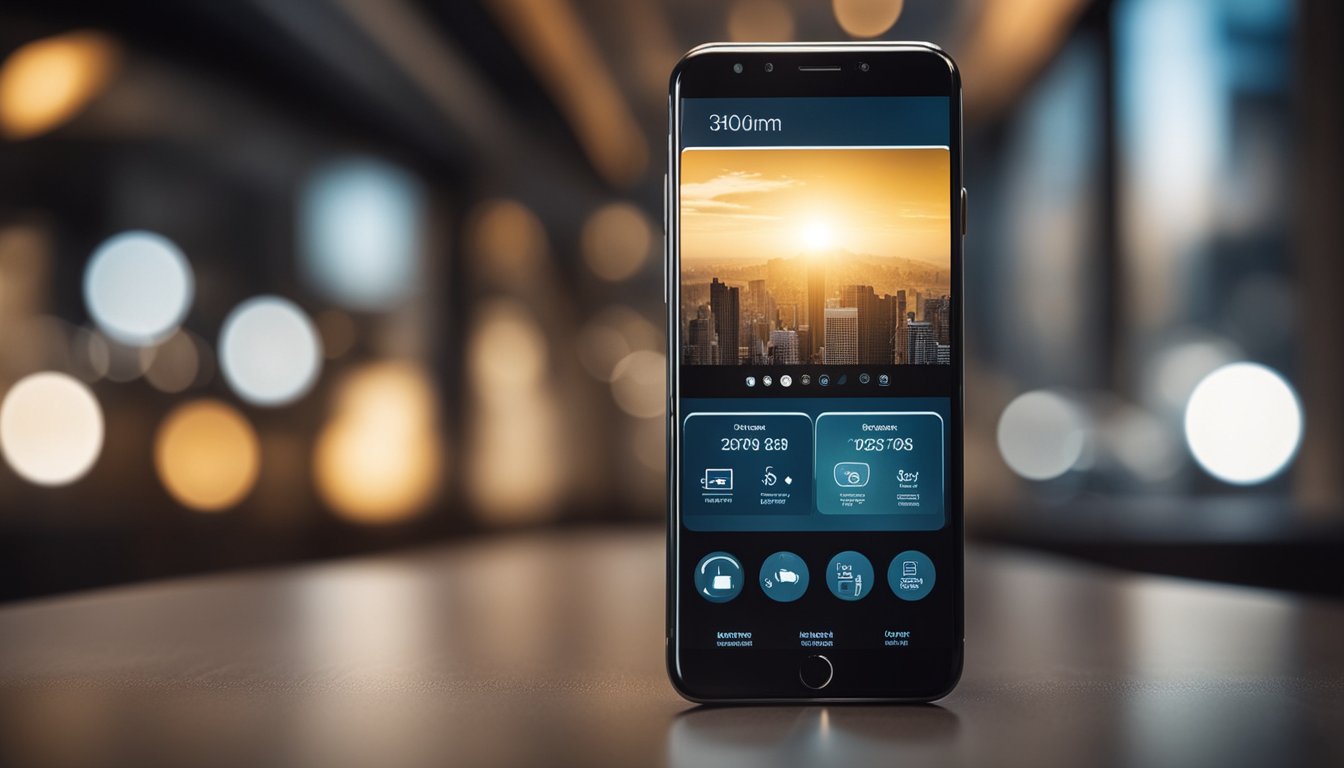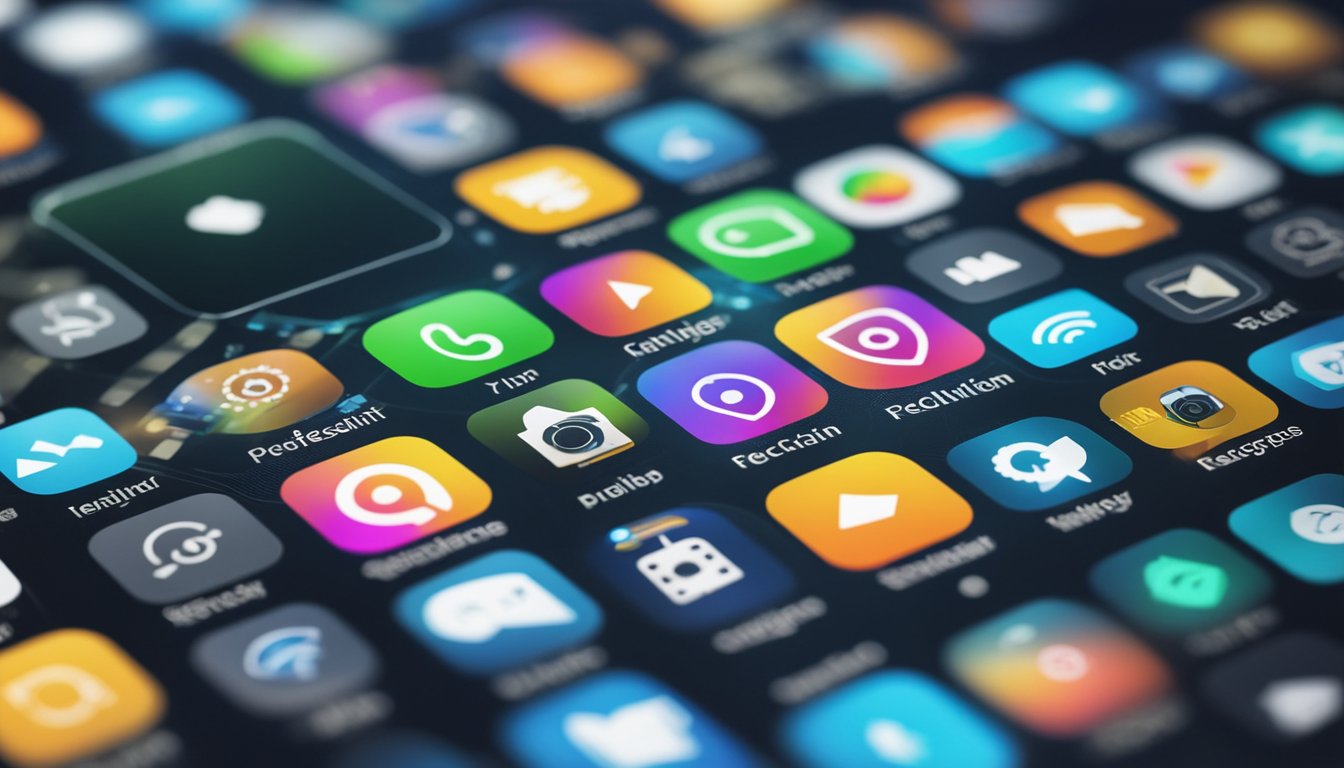Create a Secure and Reliable Mobile App Best Practices and Tips
Creating a mobile app that is both secure and reliable is essential in today's digital landscape. With the increasing number of cyber threats, it is crucial to ensure that your app is designed to protect user data and maintain its functionality. As a developer, I understand the importance of creating a mobile app that is secure and reliable, and in this article, I will share my knowledge and expertise on how to achieve this.

Understanding mobile app security is the first step in creating a secure and reliable mobile app. This involves identifying potential vulnerabilities and implementing security measures to mitigate these risks. From incorporating the security team from day one to using a secure database or server to host your application, there are several steps you can take to enhance the security of your mobile app. By following best practices and staying up-to-date with the latest security trends, you can ensure that your mobile app is secure and reliable.
Designing and developing secure mobile apps is the next crucial step in creating a secure and reliable mobile app. This involves implementing secure coding practices, using encryption to protect user data, and testing your app thoroughly to identify and fix any security issues. By prioritizing security during the design and development process, you can create a mobile app that users can trust and rely on.
Key Takeaways
- Understanding mobile app security is crucial in creating a secure and reliable mobile app.
- Designing and developing secure mobile apps involves implementing secure coding practices, using encryption, and testing your app thoroughly.
- Managing and maintaining mobile app security is an ongoing process that requires staying up-to-date with the latest security trends and addressing any vulnerabilities that arise.
Understanding Mobile App Security

Mobile app security is a critical aspect of any mobile application development process. It refers to the measures taken to protect mobile applications from attacks, unauthorized access, and other security vulnerabilities. In this section, I will discuss the common vulnerabilities and threats that mobile apps face and the importance of creating secure mobile apps.
Common Vulnerabilities and Threats
Mobile apps are vulnerable to various attacks from cybercriminals, hackers, and other malicious actors. Some of the common vulnerabilities and threats that mobile apps face include:
-
Malware and viruses: Malware and viruses can infect mobile apps and cause significant damage to the device and data stored on it.
-
Phishing and scams: Phishing and scams are techniques used by cybercriminals to trick users into revealing sensitive information such as login credentials, financial information, and personal data.
-
Data leaks and breaches: Data leaks and breaches occur when sensitive data is accessed or stolen by unauthorized parties. This can lead to significant financial and reputational damage to both the user and the app developer.
-
Insecure data storage: Insecure data storage is a common vulnerability in mobile apps. Developers must ensure that sensitive data such as login credentials and financial information are stored securely.
Importance of Secure Mobile Apps
Creating secure mobile apps is crucial for protecting sensitive data and ensuring the privacy of users. In addition, secure mobile apps can help prevent financial losses and reputational damage to both the user and the app developer. Here are some of the reasons why creating secure mobile apps is essential:
-
Compliance with security standards: App developers must comply with security standards such as GDPR, HIPAA, and PCI DSS to protect sensitive data.
-
Protection against cyber threats: Secure mobile apps protect against cyber threats such as malware, phishing, and data breaches.
-
Enterprise security: Secure mobile apps are essential for enterprise security as they protect corporate data and prevent unauthorized access.
-
Network security: Secure mobile apps ensure network security by preventing unauthorized access to the app and the device.
-
Data protection and privacy: Secure mobile apps protect sensitive data and ensure user privacy by implementing security measures such as encryption, secure data storage, and two-factor authentication.
In conclusion, mobile app security is critical for protecting sensitive data, ensuring user privacy, and preventing financial and reputational damage. App developers must implement security measures such as encryption, secure data storage, and two-factor authentication to create secure and reliable mobile apps.
Designing and Developing Secure Mobile Apps

As a mobile app developer, I understand the importance of designing and developing secure mobile apps. In today's world, mobile apps are vulnerable to various security threats such as data breaches, hacking, and malware attacks. Therefore, it is crucial to follow best practices in app design and development and implement security measures to minimize the risks of security breaches.
Best Practices in App Design and Development
To design and develop secure mobile apps, it is important to follow the best practices in app design and development. Here are some of the best practices that I follow:
-
Use a secure development platform: When developing a mobile app, it is important to use a secure development platform that meets security standards and requirements. This ensures that the app is efficient, reliable, and secure.
-
Implement data encryption: Implementing data encryption is a crucial step in ensuring the security of mobile apps. Data encryption protects sensitive data from unauthorized access, making it more difficult for hackers to steal user data.
-
Use multi-factor authentication: Multi-factor authentication adds an extra layer of security to mobile apps. It requires users to provide more than one form of authentication, such as a password and a fingerprint, to access the app.
-
Implement single sign-on (SSO): SSO allows users to access multiple apps with a single set of login credentials. This reduces the risk of password reuse and makes it easier for users to manage their login information.
Security Measures in App Development
In addition to following best practices in app design and development, it is important to implement security measures during app development. Here are some of the security measures that I implement:
-
Conduct security testing: Conducting security testing, including penetration testing and security checks, is crucial in identifying vulnerabilities in mobile apps. This helps to ensure that the app is secure and reliable.
-
Use firewalls: Firewalls can help to prevent unauthorized access to mobile apps and protect against malware attacks. It is important to implement firewalls in both the app and the server infrastructure.
-
Use sandboxing: Sandboxing is a security mechanism that isolates mobile apps from the rest of the operating system. This helps to prevent unauthorized access to sensitive data and protects against malware attacks.
-
Use third-party libraries with caution: When using third-party libraries, it is important to use them with caution. It is important to choose libraries that are reliable and secure, and to keep them up-to-date to ensure that they are not vulnerable to security threats.
By following these best practices and implementing security measures during app development, I can ensure that the mobile apps I develop are secure and reliable. This helps to protect user data and build trust with users, which is crucial for the success of mobile apps on app stores such as Google Play and Microsoft.
Managing and Maintaining Mobile App Security

As a mobile app developer, ensuring the security and reliability of your app is crucial. Below are some key strategies to manage and maintain mobile app security.
Regular Updates and Security Checks
Regular updates are essential to keep your app secure and reliable. Hackers are always looking for vulnerabilities, and updates can help patch any security holes. It's important to stay up-to-date with the latest security patches and updates for your app and the underlying operating system.
In addition to regular updates, security checks should be done on a regular basis. This includes testing for vulnerabilities and conducting security audits. Automated security testing tools can help streamline the process and identify potential security flaws.
Dealing with Security Breaches
Despite your best efforts, security breaches can still occur. It's important to have a plan in place to deal with security breaches and minimize the impact. This includes having a response team in place and regularly testing your incident response plan.
If a security breach does occur, it's important to act quickly. This includes identifying the source of the breach, containing the damage, and notifying affected users. It's also important to work with law enforcement and other authorities to investigate the breach and prevent future incidents.
Cloud technologies, such as Amazon Web Services and Microsoft Azure, can provide additional security measures for mobile apps. Cloud-native applications can help reduce the risk of data leaks and scams by providing secure storage and access controls.
In conclusion, managing and maintaining mobile app security is an ongoing process that requires regular updates, security checks, and a plan for dealing with security breaches. By following these strategies and leveraging cloud technologies, you can help ensure the security and reliability of your mobile app.
Frequently Asked Questions

What are some best practices for ensuring mobile app security?
Ensuring mobile app security requires a combination of best practices, such as secure coding practices, regular security testing, and implementing security features such as encryption and two-factor authentication. Other best practices include implementing access controls, using secure APIs, and ensuring secure data storage and transmission.
What are some common security features for mobile apps?
Some common security features for mobile apps include encryption, two-factor authentication, biometric authentication, access controls, and secure data storage. These features help protect the app and user data from unauthorized access and attacks.
How can mobile app developers ensure that their apps are secure?
Mobile app developers can ensure that their apps are secure by following secure coding practices, conducting regular security testing, implementing security features, and adhering to recommended security standards. They should also stay up-to-date with the latest security threats and vulnerabilities and take appropriate measures to mitigate them.
What are some recommended security standards for mobile apps?
Some recommended security standards for mobile apps include the OWASP Mobile Top 10, the NIST Mobile Application Security Guide, and the ISO/IEC 27001 standard. These standards provide guidelines and best practices for ensuring mobile app security.
How can users verify the safety of a mobile app before using it?
Users can verify the safety of a mobile app before using it by checking the app's reviews, ratings, and permissions. They should also check if the app is from a reputable developer and if it has been downloaded from a trusted app store. Additionally, users should be cautious of apps that request excessive permissions or ask for sensitive information.
What are some effective ways to keep mobile app data secure?
Some effective ways to keep mobile app data secure include using strong passwords, enabling two-factor authentication, encrypting data, and regularly updating the app. Users should also avoid using public Wi-Fi networks and be cautious of phishing scams and other social engineering attacks.

We are committed to delivering a new level of automation that will help organizations save time, money, and staffing resources.
 WRITE FOR US!
WRITE FOR US!
